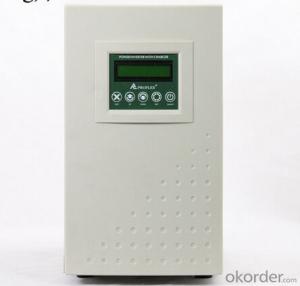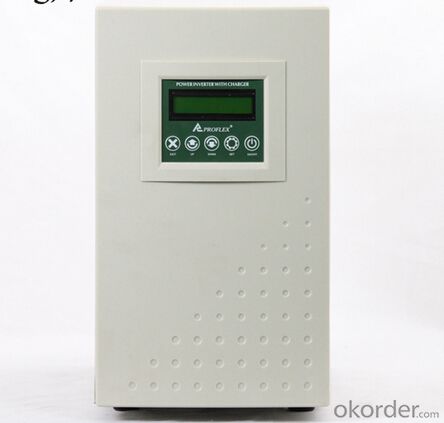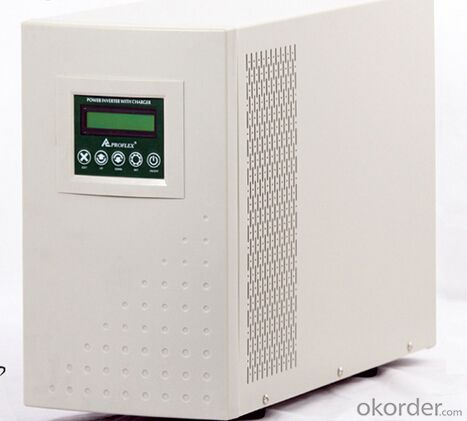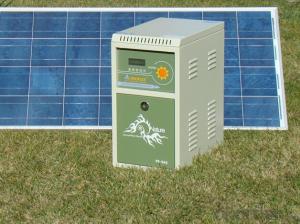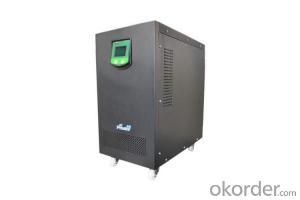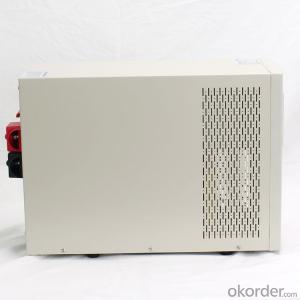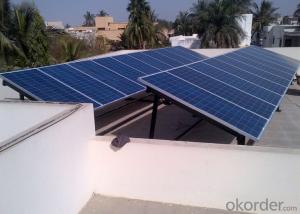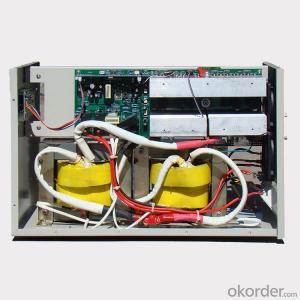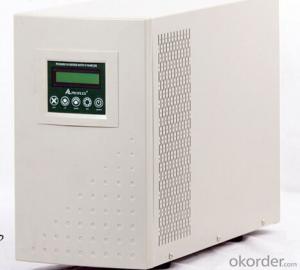Solar Energy Systems for Home:Off Grid Solar Power System PR-SAS1000 with Battery Tank 800W
- Loading Port:
- Tianjin
- Payment Terms:
- TT OR LC
- Min Order Qty:
- 10 pc
- Supply Capability:
- 10000 pc/month
OKorder Service Pledge
OKorder Financial Service
You Might Also Like
Specification
Specifications
1.Supply 2 work modes: to save electricity bill or to supply long time power backup.
2. Supply battery tank,high integrated.
AC solar power system consists of solar batteries, solar controller, battery, inverter components.
Used to solve rural or remote areas without electricity, such as highland, island, pastoral, villas, border posts and other military and civilian life electricity.
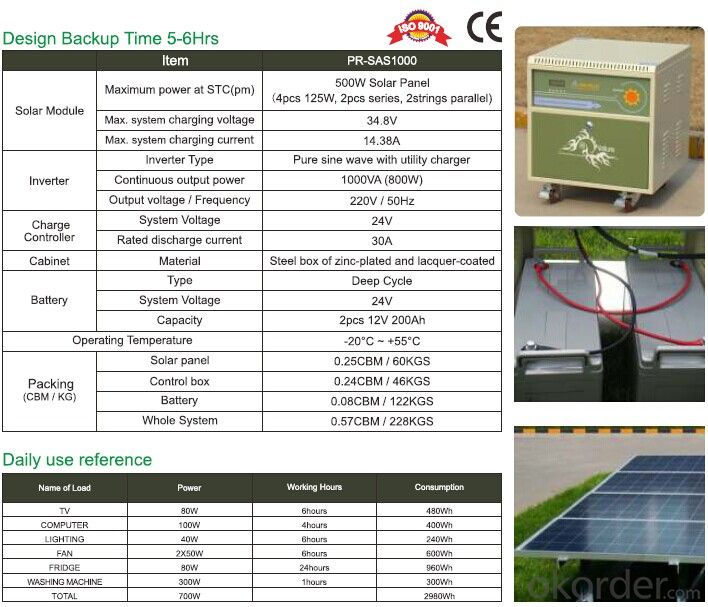

FAQ
l Where can I buy your products?
You could find our products from dealers or contact our sales team directly. We will provide you with detailed services.
l How to contact us?
Contact details can be found from website www.okorder.com to contact us. We look forward to providing you with professional services.
l What is the application field of your products?
They can be used in the small photovoltaic (PV) grid power generation systems of family units as well as the commercial photovoltaic system such as BIPV, BAPV and etc.
l What kinds of modules do your inventers support?
Our inventers support most of mainstream components and modules in the market. Should you require more details, please do not hesitate to contact our technical personnel.
- Q: Can a solar energy system be installed on a carport or parking lot?
- Yes, a solar energy system can be installed on a carport or parking lot. In fact, carports and parking lots are ideal locations for solar panel installations as they provide ample space and can generate clean energy while also providing shade and protection for vehicles. This also allows for dual use of the space, making it a cost-effective and sustainable solution for generating renewable energy.
- Q: What is the impact of dust storms on solar panels?
- Dust storms can have a significant impact on solar panels. The accumulation of dust and debris on the surface of solar panels can block sunlight from reaching the photovoltaic cells, reducing their efficiency and overall electricity generation. Dust particles on the surface of the panels create a barrier that prevents sunlight from penetrating and being converted into electricity. This can result in a decrease in power output and a decrease in the overall performance of the solar panel system. Furthermore, dust storms can also cause physical damage to the panels. Strong winds during a dust storm can carry abrasive particles that can scratch or chip the surface of the panels, leading to long-term degradation and reduced efficiency. The accumulation of dust and debris can also increase the temperature of the panels, which can further decrease their efficiency. To mitigate the impact of dust storms on solar panels, regular cleaning and maintenance are essential. Cleaning the panels periodically to remove dust and debris can help maintain their efficiency and maximize electricity generation. Additionally, installing panel tilt systems or incorporating self-cleaning technologies can also minimize the impact of dust storms by effectively shedding off or preventing dust accumulation. Overall, dust storms can have a detrimental impact on solar panels, reducing their efficiency and potentially causing physical damage. However, with proper maintenance and cleaning practices, the negative effects of dust storms can be minimized, allowing solar panels to continue generating clean and sustainable energy.
- Q: Can solar panels be used to power agricultural irrigation systems?
- Yes, solar panels can be used to power agricultural irrigation systems. Solar energy can be converted into electricity, which can then be used to power pumps and other irrigation equipment. This sustainable and renewable energy source offers a cost-effective and environmentally friendly solution for powering irrigation systems in remote and off-grid areas.
- Q: Are there any risks of electrical shocks during installation or maintenance of solar energy systems?
- Yes, there are risks of electrical shocks during the installation or maintenance of solar energy systems. Solar energy systems involve working with electrical components, including solar panels, inverters, and batteries, which can carry high voltage. If proper safety measures are not followed, it is possible to come into contact with live electrical parts and receive an electrical shock. Some common risks that can lead to electrical shocks include improper installation, inadequate training or knowledge of electrical systems, failure to use personal protective equipment (PPE), and lack of proper grounding. When installing or maintaining solar energy systems, it is crucial to follow safety guidelines and regulations, such as wearing insulated gloves, using insulated tools, and ensuring that the system is properly grounded. Additionally, working at heights during installation or maintenance poses an additional risk of electrical shocks. It is important to exercise caution to prevent falls or accidental contact with live electrical parts while working on rooftops or elevated areas. To mitigate the risks of electrical shocks, it is recommended to hire qualified and trained professionals for the installation and maintenance of solar energy systems. Regular inspections and maintenance checks should also be conducted to identify and address any potential electrical hazards. Overall, while solar energy systems offer numerous benefits, it is essential to be aware of the potential risks of electrical shocks and take necessary precautions to ensure the safety of individuals involved in the installation or maintenance process.
- Q: How much money can I save with solar energy?
- The amount of money you can save with solar energy depends on various factors such as your location, energy usage, system size, and local incentives. However, on average, homeowners can save thousands of dollars over the lifespan of their solar panel system.
- Q: How often do solar panels need to be cleaned or maintained?
- Solar panels generally require minimal cleaning and maintenance. The frequency of cleaning depends on factors such as the location, weather conditions, and the level of dirt accumulation. In most cases, solar panels can be cleaned once or twice a year, while routine maintenance, such as checking for debris or damage, should be performed regularly.
- Q: Can solar energy systems be used in powering electric fences or security systems?
- Certainly, electric fences or security systems can be powered by solar energy systems. The conversion of sunlight into energy by solar panels enables the generation of electricity, which can be stored in batteries or used directly to operate different devices. This renders solar energy systems a feasible and sustainable alternative for powering electric fences or security systems, particularly in remote or off-grid areas where conventional power sources may not be accessible or dependable. Solar-powered electric fences effectively discourage intruders or confine animals within a specific area, while solar-powered security systems provide continuous surveillance and monitoring without the requirement of a constant electricity supply. Moreover, solar energy systems are eco-friendly and aid in reducing carbon emissions related to traditional power sources, thus becoming an increasingly sought-after and cost-efficient solution for diverse applications, including electric fences and security systems.
- Q: Can solar energy systems be used for powering off-grid eco-tourism destinations?
- Yes, solar energy systems can definitely be used for powering off-grid eco-tourism destinations. Solar panels can be installed to harness the power of the sun and convert it into electricity, providing a sustainable and clean energy source for these destinations. This not only reduces their dependence on traditional fossil fuel generators but also minimizes their carbon footprint, aligning with the eco-friendly practices of these destinations. Additionally, solar energy systems can be designed to store excess energy in batteries, ensuring a continuous power supply even when the sun is not shining.
- Q: How much does it cost to install a solar energy system?
- The cost of installing a solar energy system can vary depending on various factors such as the size of the system, location, equipment used, and installation costs. On average, residential solar energy systems can range from $15,000 to $25,000 after accounting for tax incentives and rebates. However, it is recommended to obtain personalized quotes from solar installation companies to get an accurate estimate for your specific needs.
- Q: Can a solar energy system be installed on a sloped roof?
- A sloped roof is capable of accommodating a solar energy system. Indeed, it is quite customary to install solar panels on such roofs. The efficiency of the system can actually be enhanced by the angle and orientation of the roof. When the solar panels are tilted at the optimal angle, they absorb sunlight more effectively and generate maximum energy output. Furthermore, the incline of the roof aids in self-cleaning as rainwater effortlessly washes away any dirt or debris that might accumulate on the panels. Nevertheless, it is crucial to assess the structural stability of the roof and verify its capacity to bear the weight of the solar panels.
Send your message to us
Solar Energy Systems for Home:Off Grid Solar Power System PR-SAS1000 with Battery Tank 800W
- Loading Port:
- Tianjin
- Payment Terms:
- TT OR LC
- Min Order Qty:
- 10 pc
- Supply Capability:
- 10000 pc/month
OKorder Service Pledge
OKorder Financial Service
Similar products
Hot products
Hot Searches
Related keywords
